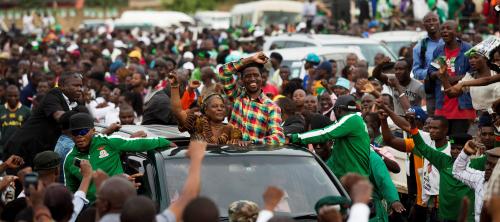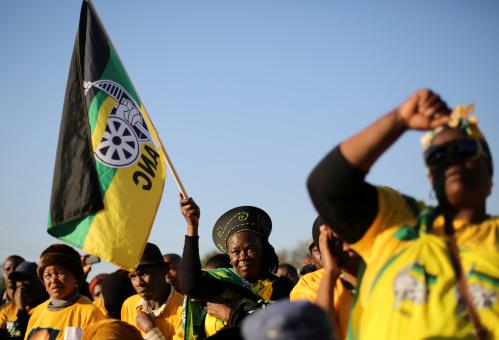Report on debt in Africa highlights trends and financing opportunities
How should African countries finance their efforts to meet the post-2015 development agenda objectives without increasing their debt to unsustainable levels? A report launched by the United Nations Conference on Trade and Development (UNCTAD), the Economic Development in Africa Report 2016: Debt Dynamics and Development Finance in Africa, argues that harnessing all financing options—external and domestic debt, as well as complementary modalities—is important for obtaining the required funding for achieving the region’s development targets, which amounts to between $600 billion to $1.2 trillion according to recent estimates.
By exploring the composition and trends of the debt landscape in Africa, the report finds that both external and domestic debt is on the rise—especially in countries with declining export revenues, widening current account deficits, and low growth—but certain challenges to successfully leverage these financing options in order to meet the Sustainable Development Goals (SDGs) must still be addressed. For instance, external debt is becoming less concessional and has more restrictive terms and conditions. Meanwhile, domestic debt has grown, mostly through marketable debt, and domestic capital markets have also deepened in recent years; yet, to further strengthen domestic capital markets and increase the amount of long-term savings they have available, countries must develop their retirement benefits, industries, and insurance sectors. Other modalities, such as remittances, public-private partnerships, and funds recuperated from illicit financial flows, though they may not affect debt sustainability, can have the potential to support development outcomes—but greater institutional capacity is needed. Furthermore, the report argues that the World Bank–IMF Debt Sustainability Framework for Low-income Countries (LICs), which analyzes external debt exposure, must be re-examined to prevent LICs from stagnating in low-debt and low-growth scenarios and also to account for domestic debt exposure in its analysis.
South Africa’s African National Congress (ANC) fails to create ruling coalition amid municipal election losses
During the August 3 municipal elections, the ANC secured 54.5 percent of the popular vote, its worst performance since the party began its rule of South Africa in 1994. While the party obtained an absolute majority of votes in three of the eight major cities, that number is down from seven in 2011. The party notably lost hold of Nelson Mandela Bay, Johannesburg, and Tshwane, which includes the country’s capital Pretoria.
Lately, the party has been trying to form ruling coalitions in cities where they did not obtain an absolute majority, one which is Johannesburg. In the aim to rule Johannesburg amid only gaining 44.55 percent of the votes and failing to obtain an absolute majority, the ANC has attempted to form a coalition with the second-biggest opposition party, the Economic Freedom Fighters, who obtained 8.2 percent of the national vote and 11.09 percent of votes in Johannesburg. On Tuesday however, the leader of the EFF stated that the coalition would not be created, as the ANC did not accept their terms and conditions, one of which involved the resignation of President Jacob Zuma.
Reports state that the EFF considered forming a coalition with the Democratic Alliance, South Africa’s largest opposition party. However, as the two parties lie at opposite ends of the political spectrum, the EFF stated that they would support the DA while abstaining from forming a coalition.
Close Zambian election evokes claims of vote-rigging
After a highly contested election held last Thursday and a short delay, earlier this week incumbent President Edgar Lungu was announced the winner in Zambia’s presidential election. With an unexpectedly large turnout, Lungu won with 50.35 percent of the vote while his biggest rival, Hakainde Hichilema, earned 47.67 percent. The two had squared off for the presidency last year in a special election, the result of which was similarly close.
Already Hilchema’s United Party for National Development has accused the country’s electoral commission of vote rigging. Hilchema has stated, “We submitted evidence before the declaration of the results regarding the gross irregularities that have taken place. That is why we will not accept the result.” Some discrepancies have also been acknowledged by European Union observers, such as media bias towards Lungu and police ““unfairly blocking events of opposition parties at short notice.” In addition, the country’s only independent newspaper was also such down for tax reasons shortly before the election. However, the EU has also stated that the voting did go smoothly and was “was generally well-administered and peaceful.”
Though Zambia has been known for its political stability and smooth transfers of power, uneasiness around the result has arisen. Violence had already erupted a month before the elections, forcing the electoral commission to suspend campaigning for 10 days. On August 15, police arrested 133 pro-Hichilema protestors on the grounds they were destroying property of Lungu supporters.
The Brookings Institution is committed to quality, independence, and impact.
We are supported by a diverse array of funders. In line with our values and policies, each Brookings publication represents the sole views of its author(s).







Commentary
Africa in the News: UNCTAD releases report on African debt, the ANC seeks coalition partners, Zambia publishes election results
August 19, 2016